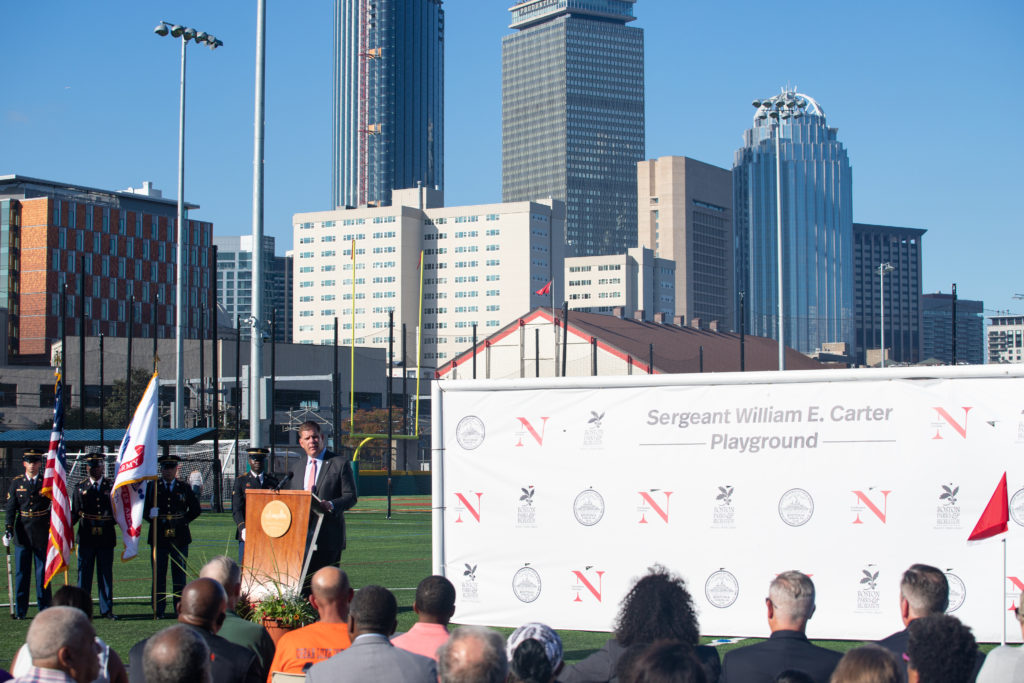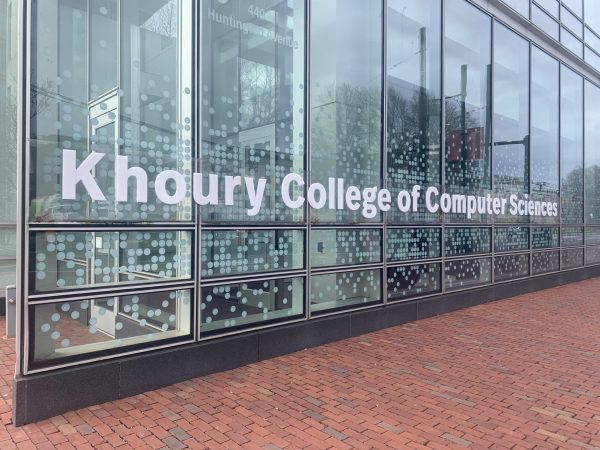Renovated playground brings differing opinions
October 4, 2018
Community members, students and government officials traveled to Columbus Ave. on Sept. 14 to celebrate the opening of the newly renovated William E. Carter Playground.
Mayor Martin J. Walsh proposed the project to transform Carter Playground. The construction included expanding the park, constructing new tennis courts, covering all the fields with artificial turf and moving the playground front and center.
“We had natural grass for some of the field, but frankly the grass had been worn down to bare dirt,” Cook said. “There was a crumbling football stands along the MBTA tracks. In the back corner, there was actual parking lot.”
Over time, the public park became a “really challenging urban space” for the city, said Boston Parks Commissioner Chris Cook. Northeastern University partnered with the city to renovate and repair the park, breaking ground on the project in 2017.
“Having the playground front and center right across from NUPD just makes it a really safe and welcoming playground, to have it here along Columbus Avenue,” said Ian Parks, project manager on behalf of Northeastern. “I think it’ll be awesome for the kids, definitely.”
The construction also includes advancements to enable year-round use for Carter Playground. During winter months, one of the fields will be covered by an inflatable cover allowing teams from the community and Northeastern to continue using the playground, said Cook.
“I think it’s great,” said Kedest Gebru, a Back Bay resident. “They did a really good job. It’s good for the community.”
Some groups within the local community see the university’s previous and most recent expansions as gentrification of the Roxbury neighborhood, with the expansion of the playground adding to the issue.
As the university expands into the surrounding community, Roxbury residents are often forced out of their homes and relocated. Northeastern professor Barry Bluestone said that while the playground improves the Roxbury community, the university should be doing more to help the displaced residents.
“I’m not opposed to the improvements that were made, and they were extensive, at the Carter Playground,” Bluestone said, “but that puts even more pressure on the university to take action on the housing front to reduce the impact of gentrification.”
Bluestone said that the universities within Boston, along with the city’s government, should team up to help improve the housing market in the gentrified communities.
“The success of Northeastern, of BU, of BC has come at the expense of the local community,” Bluestone said, “and therefore, we have a responsibility to try and solve that housing problem.”
Northeastern funded these renovations and invested $26 million into the project for the repairs, committing another $82 million in maintenance over the next 30 years.
Sean McIntyre, a fifth-year business administration major who spoke at the event to represent the student athletes at Northeastern, believed this partnership signals the important role Northeastern can play in the local community.
“For me, Carter signifies two equally important commitments Northeastern has made,” McIntyre said. “One is to the club and intramural sports at Northeastern and two is building a harmonious relationship with the city of Boston.”
But while this partnership has seen success, Boston officials are not ready to adopt this process as a common system.
“This situation was perfect for this unique public-private partnership, but I do think cities have to be very, very responsible, not to rush into public-private partnerships and really analyze the specific situation,” Cook said. “We’re very grateful that this one is a positive.”
Christopher Butler contributed to this article.


















